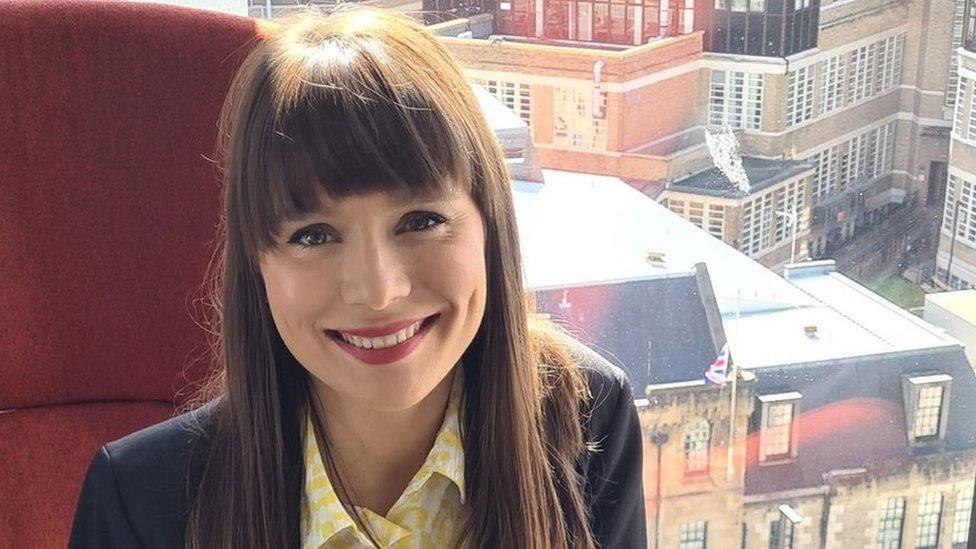Ukrainian family in Fife offered temporary home in Dumfries
- Published
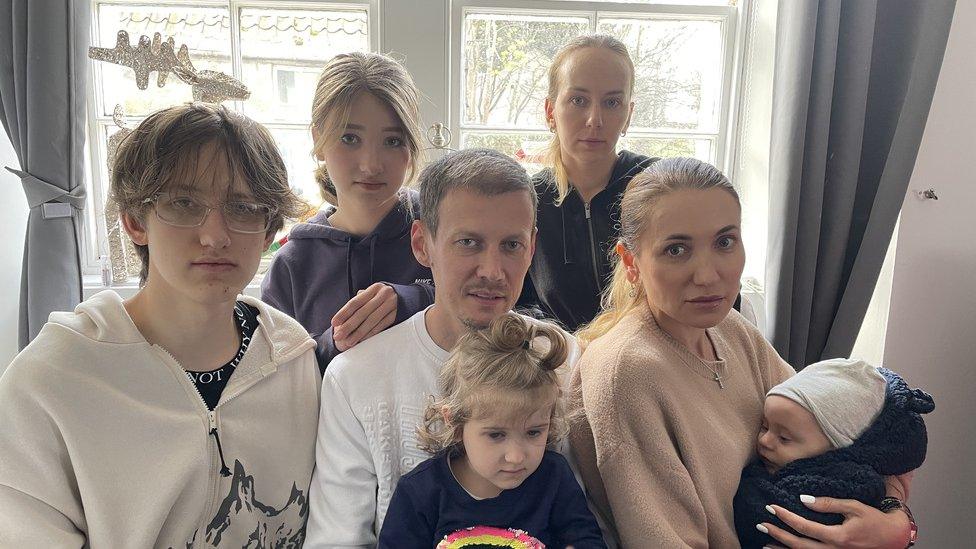
The Repa family may need to move two-and-a-half hours away
A Ukrainian family faces being relocated more than 130 miles away from their new home due to a shortage of suitable housing in Fife.
Tetiana Repa's family moved to Cupar after fleeing the war last year.
The children are in school, the parents are in work, and their grandparents have also relocated to the town.
However their housing arrangements are coming to an end and Fife Council has offered them temporary accommodation in a Dumfries hotel.
It said it would allow the family to remain together until "a more settled alternative" could be found locally.
The local authority said it had discussed options to enable the family to remain in Fife "but they have declined this assistance".
Dumfries is more than two-and-a-half hours drive away from Cupar. The quickest route using motorways is 132 miles long.
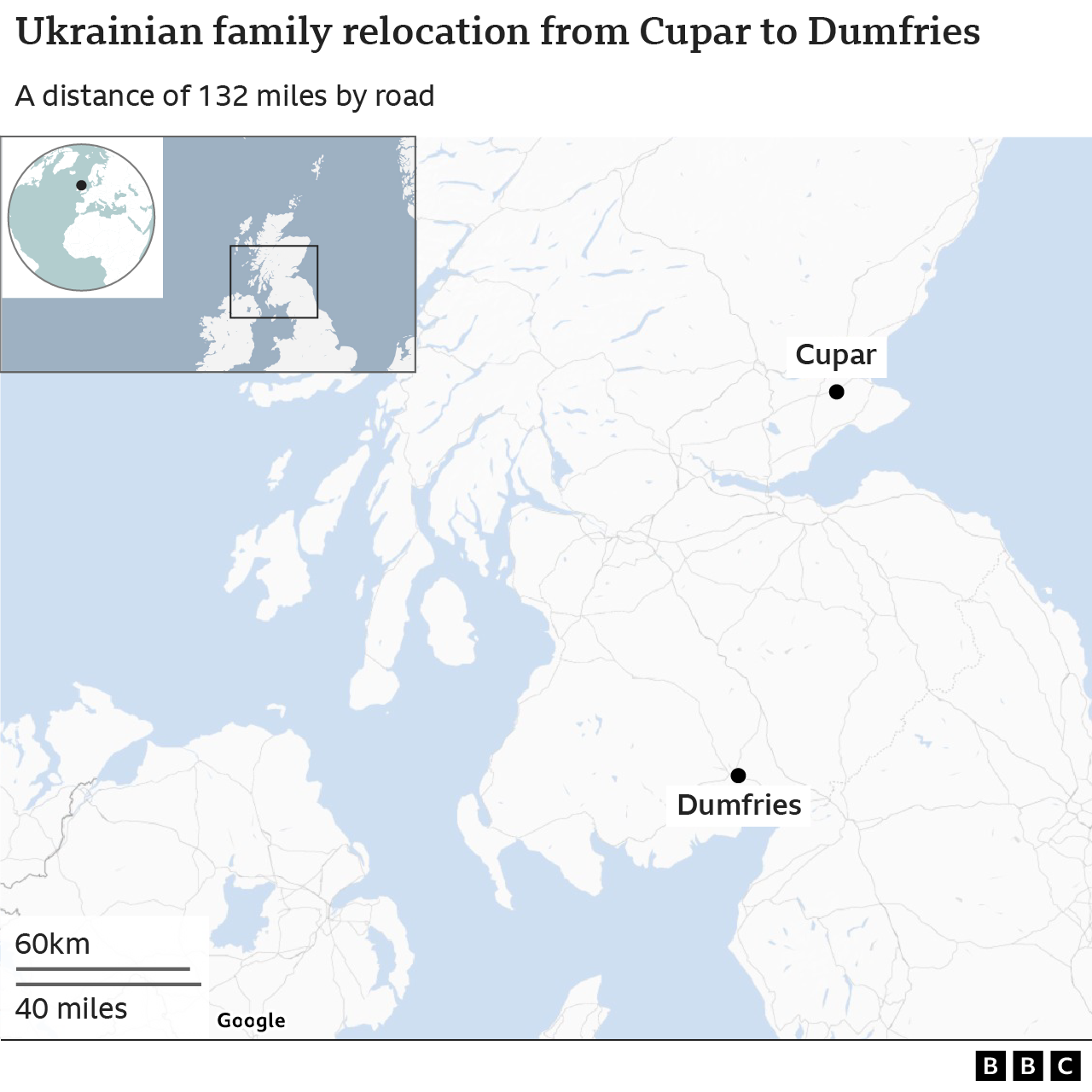
The family fear such a move would separate them from their elderly grandparents who are settled with a different sponsor.
They also worry about disruption to their employment and schooling.
Tetiana's 16-year-old son, Ioan, is due to sit his exams at a local school in the next few weeks.
Ioan said: "We have our grandparents here and they are old, so they have some health problems and they can't be without us.
"They don't know any English words so they will just disappear without us."
The family moved to the UK under the Ukraine sponsorship scheme but their accommodation arrangements are due to come to an end.
Ms Repa's sister Olga Karpova made the journey from Ukraine to live with them in October when she was pregnant. She now has a four-month-old son.
She said moving to temporary accommodation in Dumfries would disrupt their newly-established lives in Fife.
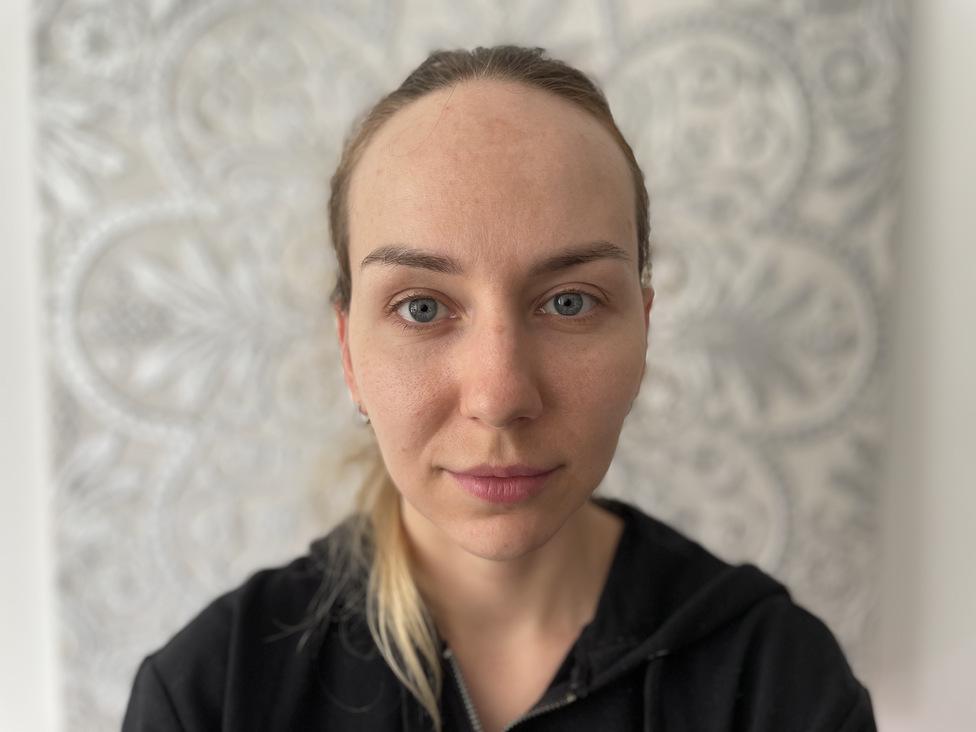
Olga Karpova gave birth to a young child after escaping Ukraine
"The flat is very good and we really appreciate the opportunity to stay here for so long and to stay safe and go away from the war," she said.
"We don't know what to do because we really appreciate that Fife Council provide this opportunity to move to a hotel.
"But this hotel is two and a half hours away and it is not in Fife, it's near the border with England."
She also worries that it is temporary accommodation.
"So everybody would have to leave their lives that are quite settled here, to quit their jobs, to quit nursery, school, college, to start a new life again like it was last year when we left Ukraine," she said.
The Dumfries hotel also does not allow pets, so they would have to give away the family cat.
Fife Council's resettlement co-ordinator Valerie Husband said that when arrangements between hosts and guests on the Ukraine sponsorship schemes ends, "we will do what we can to help guests find alternative accommodation, although individual circumstances can affect what we can do to help".
She added: "We're working with the family affected, discussing and exploring all housing options including the accommodation in Dumfries, which is part of the Scottish government's Ukraine Welcome Accommodation. This would have allowed the family to remain together until a more settled alternative can be found locally.
"We have also discussed options under our statutory duties to enable the family to remain in Fife, but they have declined this assistance. We will stay in regular contact with the family and continue discussions on what other options are available."
"The council is under extreme pressure to meet housing needs with the number of households requiring assistance reaching unprecedented levels," she said. "This challenge is being felt by all councils across Scotland."
A spokesman for the Scottish government said they sympathised with the situation of the family.
"Providing support and sanctuary for displaced people from Ukraine will continue to be a priority for the Scottish government as people in Scotland would expect," he said.
He added that more than 24,200 people with a Scottish sponsor had arrived in the UK by 11 April, almost 19,600 of whom were sponsored by the Scottish government.
"The Ukraine Longer-Term Resettlement Fund is making up to £50m available to local authorities and registered social landlords to bring empty properties back into use. A total of seven capital projects providing 831 homes have been approved to date."
Related topics
- Published24 March 2023
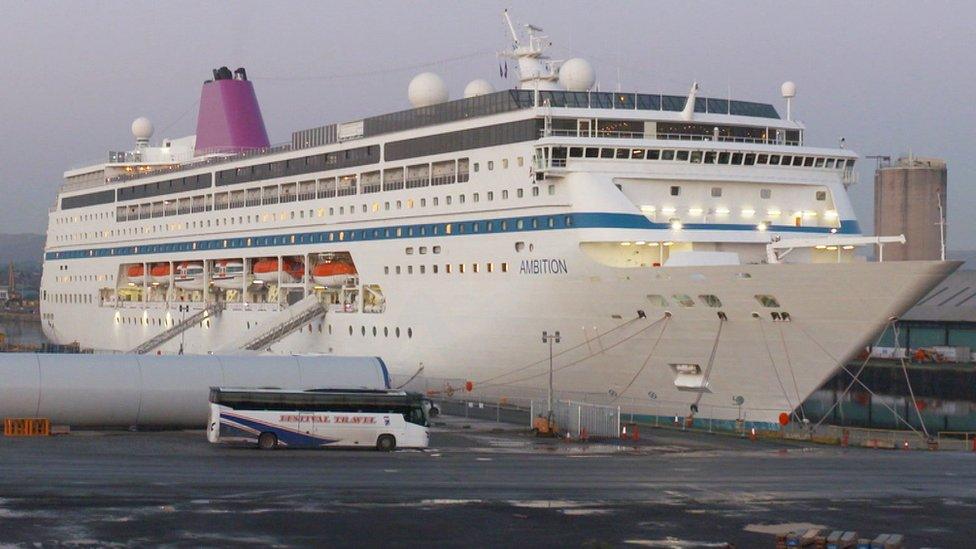
- Published24 February 2023
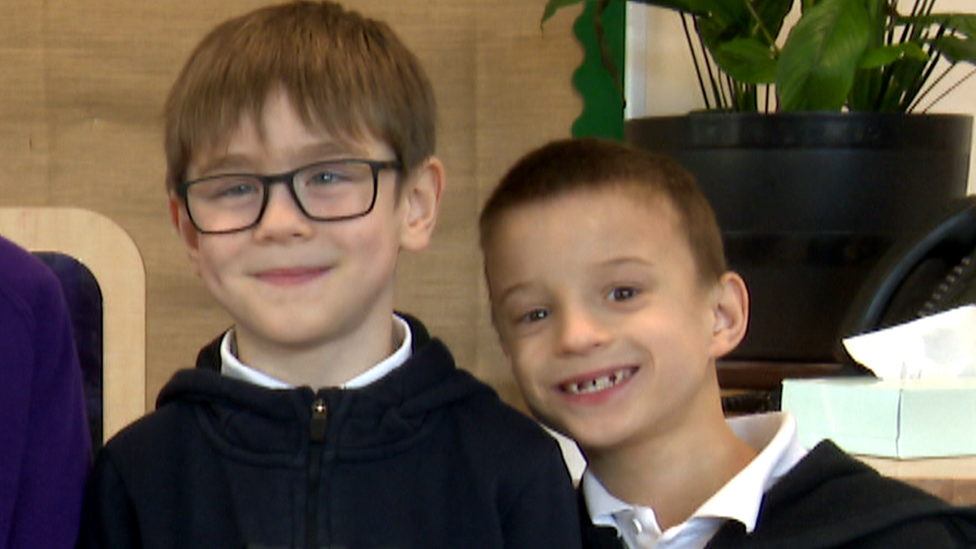
- Published27 October 2022
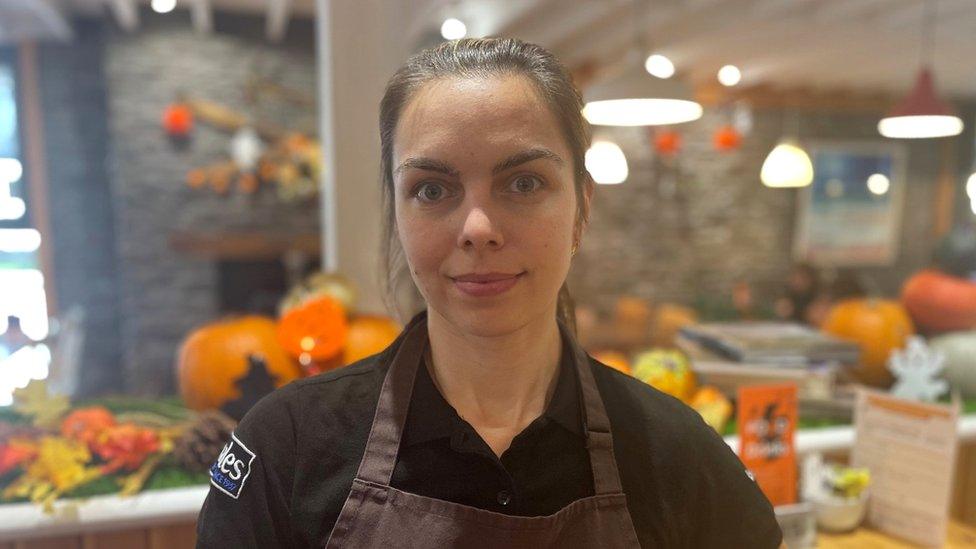
- Published13 October 2022
